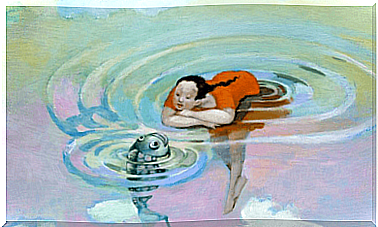Do Seasons Affect Our Mood?

Light and climatic conditions seem to have a great influence on our mood. Already in ancient Greece, Hippocrates had referred to the importance of seasonal changes in some diseases, as well as in the changes that occur in the organism due to heat or cold.
There are seasons of the year when some mental illnesses worsen or when there are mild symptoms such as a worsening of mood , increased fatigue, difficulty in falling asleep and decreased concentration. If these symptoms are too pronounced, it may be that a seasonal affective disorder is being produced in the individual: that is to say that this person is particularly sensitive to the autumn and winter season, while his symptoms improve with good weather and the lengthening of the days.
What is Seasonal Affective Disorder?
The Seasonal Affective Disorder (SAD) occurs in about six people out of a hundred; it is more common in adults, but can also occur in children and adolescents. The number of women affected by this disorder is greater than that of men, although biology, family history, environment, circumstances and individual experiences mean that some people are more predisposed than others to suffer from it.
SAD is a type of depression which, according to the latest studies and research, coincides with the lack of exposure to sunlight during the months of autumn and winter and is related to hormonal and neurotransmitter changes.
It is characterized by the presence in the individual of mood changes typical of depression, such as asthenia, feelings of discouragement, irritability, sadness, anxiety, anhedonia, decreased libido, etc. In addition, there is a predominance of vegetative symptoms such as hypersomnia, weight gain and appetite, physical fatigue and a high sensitivity to interpersonal rejection.
Why does it occur?
There are many theories as to why these changes in people’s mood occur in correspondence with seasonal changes, but most research agrees that they could be triggered by the brain’s response to decreased sunlight and be related to some hormones that regulate sleep and wake cycles, energy and mood, such as melatonin and serotonin.
Melatonin is a hormone that we naturally produce and whose main function is to regulate sleep and wake cycles. The secretion of melatonin begins to increase in the evening, remaining at high levels throughout the night and decreasing when the sun rises. Serotonin, on the other hand, works in reverse: it increases when we are exposed to sunlight and therefore has much lower levels in winter, related to symptoms such as sadness and irritability. For this reason, when the light decreases, as in autumn and winter, hormonal imbalances can occur that affect our mood.
When the days get shorter and the hours of darkness increase, there is an increase in melatonin levels and a decrease in serotonin, and this can create, in some cases, biological problems that lead to a worsening of the mood. To all this, of course, we must add the individual’s family history, the context in which he finds himself, his personal condition and his experiences.
Image courtesy of Gianluca Gobbi









